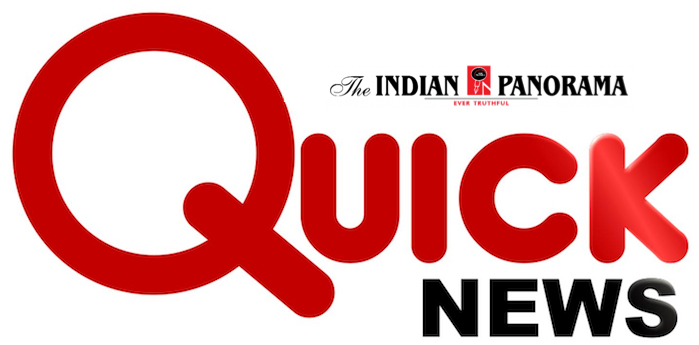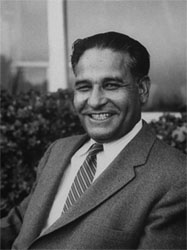
Imran Khan and Tahirul Qadri, according to their supporters, represent an aspiration for “commonsense” democracy which empowers and liberates the common man. Nawaz Sharif and his ilk represent the “traditional power structure” democracy or crony and phony democracy.

How should we view the goings-on in Islamabad? Low comedy and high farce? A national disgrace? A serious breakdown of governance? A critical opportunity? The start of a real transition towards better governance and more genuine democracy? Or preparing the ground for another decade of open or de facto military rule? Some analysts suggest all these views are valid to one degree or another, except that it is not clear what the outcome will be. Nawaz Sharif is seen by many as a three-time elected prime minister who must be allowed to complete his tenure if democracy in Pakistan is not to be derailed yet again.
His record of governance may be patchy. But he has only completed 15 months of a five-year mandate. Moreover, governance is always a learning process and democracy is always a work in progress. As Bill Clinton said in his address to Pakistanis during his brief stopover in Islamabad in 2000, imperfect democracy needs to be addressed through better democracy, not the suspension of democracy. Gen Musharraf argued he was a better democrat than the politicians.
The Constitution of Pakistan, however, explicitly excludes unconstitutional and undemocratic interventions to resolve political challenges facing the country. Those of this view might approvingly refer to Bertolt Brecht’s play The Life of Galileo in which Andrea says, “Unhappy the land that has no heroes,” to which Galileo replies, “Unhappy the land that needs heroes”. Nawaz Sharif supporters might also quote Aneurin Bevan’s description of a political opponent as “suffering from petrified adolescence”.
According to this view, both Imran Khan and Allama Tahirul Qadri are endangering constitutional democracy and the economic development of Pakistan through their “antics”. They are also making a spectacle of themselves and of the country through their politics of anger and frustration. Their escalating and shifting demands, accompanied by a range of threats, only confirm their hunger for power at any cost to the nation. This is the essence of fascism rather than democracy.
It represents an entire negation of the Quaid’s philosophy of political agitation which rested on an uncompromising respect for constitutional procedures and an emphatic rejection of Gandhi’s calls for civil disobedience. According to Noam Chomsky, there is a “commonsense” or dictionary meaning of democracy and a contrasting “doctrinal or real world” meaning of democracy. According to the commonsense or dictionary meaning, roughly speaking, a society is democratic to the extent that people in it have meaningful opportunities to take part in the formation of public policy. There are a lot of different ways in which that can be true.
But insofar as it is true, the society is democratic.” The “real world,” (indeed we may say traditional Pakistani) meaning has been “a top-down democracy that leaves traditional structures of power in effective control”. Chomsky adds “if segments of the public depart from their apathy and begin to organise and enter the public arena that, according to those in control, is not democracy.
Rather it is a ‘crisis’ of democracy”. Imran Khan and Tahirul Qadri, according to their supporters and sympathisers represent an aspiration for “commonsense” democracy which empowers and liberates the common man. Nawaz Sharif and his ilk, in this view, represent “traditional power structure” democracy; in other words, crony and phony democracy that has been manifest in the worst-ever governance in Pakistan’s history. This is rule by money and power, including the criminal abuse of constitutional authority. This excludes the prospect of real movement towards any kind of inclusive or “commonsense” democracy.
According to this view, both protagonists of “commonsense democracy” (some would argue Imran more than Qadri) represent the only hope for Pakistan to avoid descending into the realm of state failure. Many who are deeply aware of Imran’s shortcomings as a political leader, including his exaggerated and empty posturing in recent days, see him as a vitally important transition figure. His contribution has been to make the people aware of their rights and their potential to organise and sustain a multi-layered struggle on behalf of “commonsense” democracy and inclusive and consultative governance.
This is the only way to prioritise the agendas of the people rather than those of their exploiters who rule them in the name of “doctrinal” or “constitutional” democracy. Moreover, Imran’s supporters argue he has a “vision” for Pakistan for which he has stood up whereas Nawaz Sharif stands for no vision at all except power, pelf and privilege for himself and his family. They might approve of two Biblical sayings: “Where there is no vision, the people perish” and possibly also, “Great men are not always wise.” So where are we headed and what can we hope for? We need first to be clear.
Nawaz Sharif would not accept that he represents “traditional power structure” democracy and that his governance is beyond redemption. Nor is it clear that Imran Khan has the leadership qualities embodied in the Arab proverb, “It is the tribe that tells the chief how to do his job”. He has to broaden his focus beyond Nawaz Sharif without compromising his core demands. He should avoid off-the-cuff public statements that embarrass his supporters.
He should accept that a Supreme Courtappointed judicial commission will be able to act very independently of a battered and weakened Nawaz Sharif, especially if the FIRs concerning the Model Town massacre are registered against the accused. At a critical time before the elections of 2013, Imran Khan switched from leading a national movement for radical reform of the political system to leading a party for electoral success. He did very well in the elections. But not as well as he expected.
Significant if not game-changing fraud may have been involved. We should soon find out. Even significant fraud, if established, will compel Nawaz Sharif’s resignation and a fresh poll. Whether Imran wins or loses a fresh poll, he can decide how to restore his national movement for commonsense democracy which he unwisely put on the backburner.
(The author is a former Pak ambassador to the US, India and China. He can be reached at ashrafjqazi@yahoo.com)





Be the first to comment